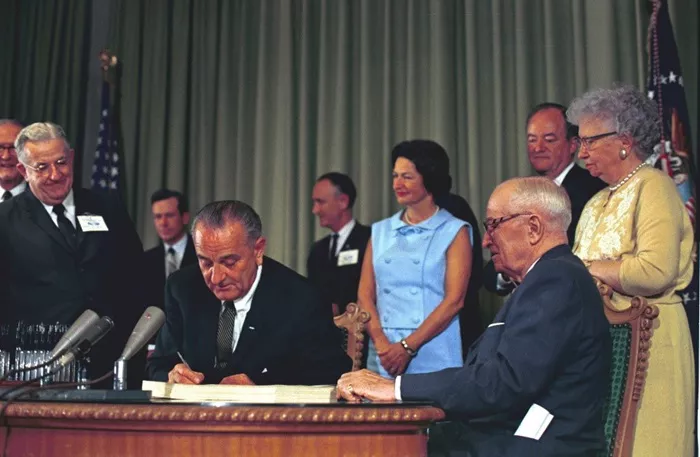June 14 holds a special place in American history, witnessing a myriad of events that have shaped the nation’s trajectory and identity. From pivotal battles to landmark legislation, from cultural milestones to political upheavals, this date encapsulates the rich tapestry of American experiences. In this comprehensive examination, we delve into some of the most noteworthy occurrences that have occurred on June 14 throughout the annals of American history.
The Adoption of the Stars and Stripes (1777)
On June 14, 1777, the Continental Congress of the fledgling United States passed a resolution adopting the Stars and Stripes as the official flag of the nation. This iconic flag, with its thirteen alternating red and white stripes representing the original thirteen colonies and a field of blue adorned with thirteen stars symbolizing a new constellation, became an enduring emblem of American unity and resilience. The adoption of the Stars and Stripes marked a pivotal moment in the nation’s quest for independence and laid the foundation for the enduring symbolism of the American flag.
Flag Day Proclamation (1916)
In a significant recognition of the importance of the American flag, President Woodrow Wilson issued a proclamation on June 14, 1916, officially establishing Flag Day as a national observance. This proclamation served to honor the flag and encourage patriotic displays of reverence for its symbolism and significance. Since then, Flag Day has been celebrated annually across the United States, providing an opportunity for citizens to reflect on the ideals and values embodied by the Stars and Stripes.
See also: What happened on May 14th in American history?
The Death of Harriet Beecher Stowe (1896)
Harriet Beecher Stowe, the acclaimed author whose seminal work “Uncle Tom’s Cabin” ignited the abolitionist movement in the United States, passed away on June 14, 1896. Stowe’s novel, first published in 1852, exposed the brutality and inhumanity of slavery to a wide audience and galvanized support for the abolitionist cause. Her passionate advocacy for the rights of African Americans helped to shift public opinion and contributed to the eventual abolition of slavery in the United States. Stowe’s legacy as a champion of social justice endures to this day, inspiring generations of activists and reformers.
The Birth of Harriet Tubman (1820)
Harriet Tubman, the courageous abolitionist and conductor of the Underground Railroad, was born into slavery on June 14, 1820, in Dorchester County, Maryland. After escaping to freedom herself, Tubman risked her life countless times to lead other enslaved individuals to liberty, earning her the nickname “Moses” among the abolitionist community. Tubman’s daring rescues and unwavering commitment to freedom made her a legendary figure in American history and a symbol of resistance against oppression. Her legacy continues to inspire generations of Americans to strive for justice and equality for all.
The Birth of Margaret Bourke-White (1904)
Margaret Bourke-White, the pioneering photojournalist and documentary photographer, was born on June 14, 1904, in New York City. Bourke-White’s striking images captured some of the defining moments of the 20th century, from the Great Depression to World War II. As one of the first female war correspondents, she broke barriers in a male-dominated field and brought the realities of war to the forefront of public consciousness. Bourke-White’s iconic photographs continue to resonate with audiences around the world, serving as powerful reminders of the human experience in times of both triumph and tragedy.
The Establishment of the United States Army (1775)
On June 14, 1775, the Continental Congress authorized the formation of the Continental Army, marking the birth of the United States Army. Under the command of General George Washington, the Continental Army played a pivotal role in securing American independence during the Revolutionary War. The establishment of a professional military force laid the foundation for the defense and security of the fledgling nation, shaping the course of American history for centuries to come.
The Civil Rights Act of 1964
On June 19, 1964, President Lyndon B. Johnson signed into law the Civil Rights Act of 1964, a landmark piece of legislation that outlawed discrimination based on race, color, religion, sex, or national origin. The passage of the Civil Rights Act marked a watershed moment in the struggle for civil rights in America, prohibiting segregation in public places and employment discrimination on the basis of race, gender, or religion. This transformative legislation paved the way for greater equality and opportunity for millions of Americans and remains a cornerstone of the nation’s commitment to justice and equality.
Conclusion
June 14 occupies a prominent place in American history, bearing witness to a diverse array of events that have shaped the nation’s identity and trajectory. From the birth of influential figures to the establishment of enduring symbols, from moments of triumph to instances of adversity, this date serves as a reminder of the complexities and contradictions inherent in the American experience. As we reflect on the events that have unfolded on June 14, may we gain a deeper understanding of the forces that have shaped our nation and a renewed appreciation for the resilience and resolve of the American people.

